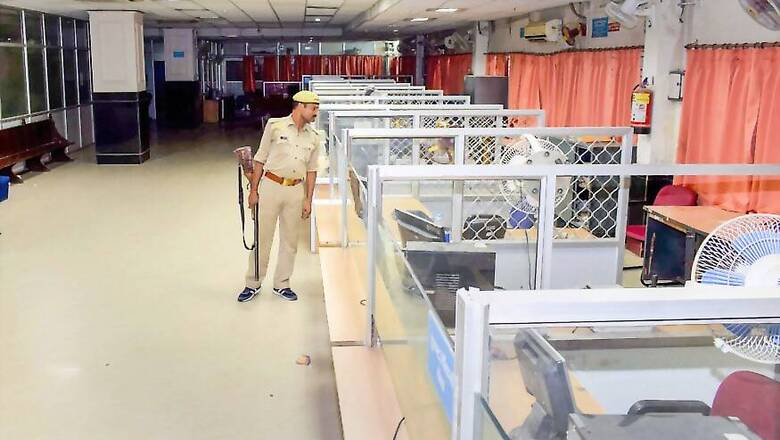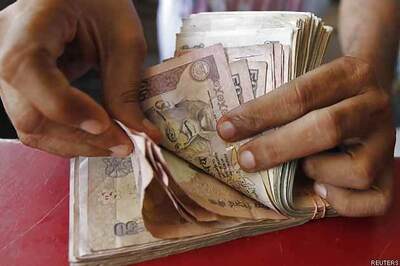
views
Public sector banks will remain closed on Wednesday, the second time in the last four working days. This second call for a strike by bank employee unions, coupled with public holidays, have crippled financial transactions across the country since December 21 as PSBs have remained shut for five out of the last six days.
Citing the reasons behind the December 21 strike, AIBOC Assistant General Secretary Sajay Das said, “We called the strike on December 21 demanding full and unconditional mandate for the XIth bipartite wage revision talks based on a charter of demands submitted in May 2017. No headway has been made in the process so far even after 19 months since the discussion on wage revision began.” Around 3 lakh officers participated in the strike.
The December 26 nation-wide strike has been called by the All India Bank Employees Association (AIBEA), opposing the merger of Bank of Baroda, Dena Bank and Vijaya Bank, stating that the move was unwarranted as it would not be beneficial to the economy and the people at large.
"The merger will also affect the interests of employees, their jobs and job security. The move would also affect employment opportunities in the banking industry," the Association general secretary CH Venkatachalam said.
Noting that several villages were yet to receive banking services, he said, "There is a huge exclusion of people. Banks need to be expanded. There is no need for consolidation".
Referring to the government's contention that the merger would make the banks stronger, Venkatachalam said, "There is no evidence to this conclusion. Last year six banks were merged with SBI. But SBI (State Bank of India) has not become any bigger."
"After merger of the six banks with SBI, the non-performing assets have further gone upto Rs 2.25 lakh crore. Hence, it is also a wrong presumption," he said.
The mergers of the banks would "surely" result in closure of branches and would endanger job security, he added.
Urging the Centre to take tough measures to recover bad loans, the association said the government was instead trying to divert attention by resorting to bank mergers.
Besides this, the union is also opposing a move to restrict the salary settlements of only up to Scale III by citing non-receipt of the ‘unconditional mandates’ from five banks. However, 15 banks from the public sector and two private banks have already given ‘unconditional mandates’.
The government in September approved the amalgamation of Bank of Baroda (BoB), Vijaya Bank and Dena Bank — the first three-way merger in the public sector banking space.
Bank mergers can also lead to some customers switching to other banks. According to the 2017 Retail Banking Satisfaction Study by the global marketing firm JD Power, 46 percent of respondents whose banks went through a merger within the previous 12 months reported they would definitely switch banks.


















Comments
0 comment